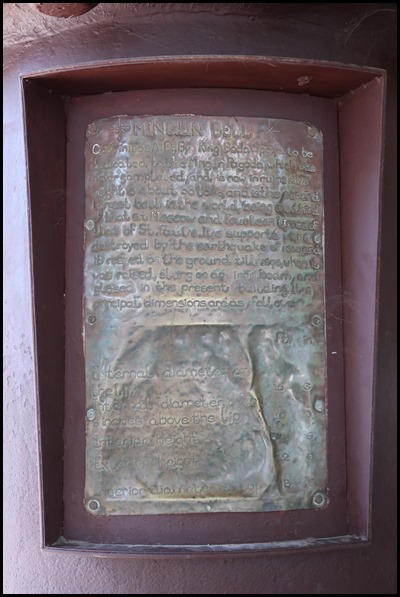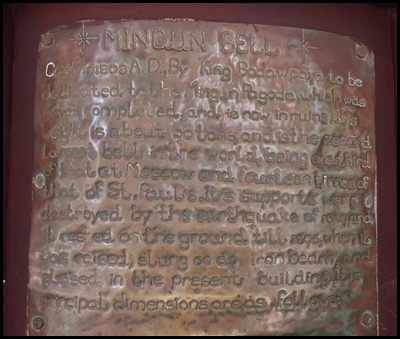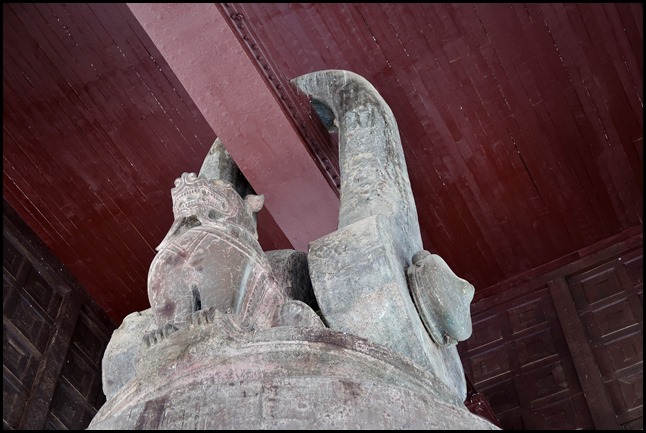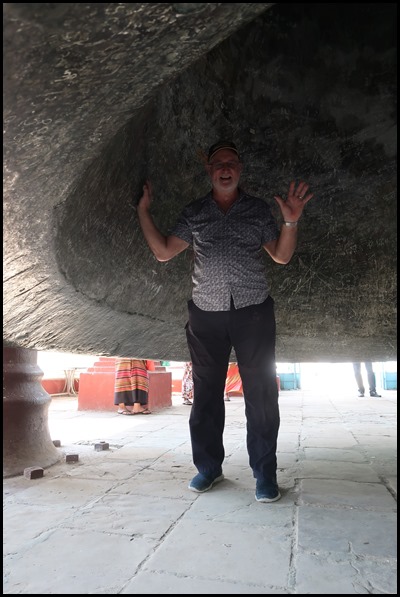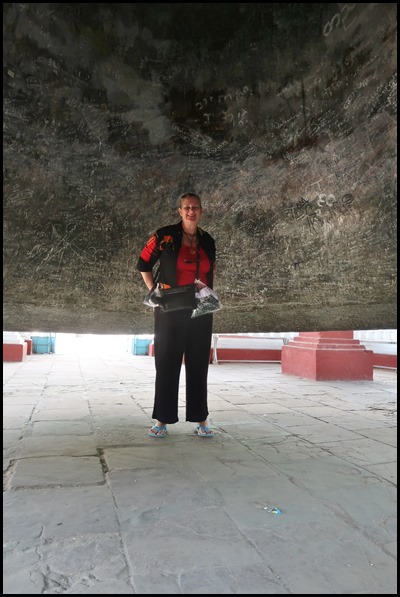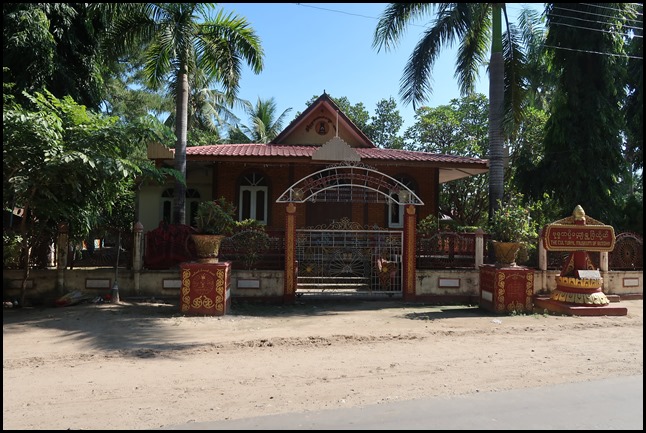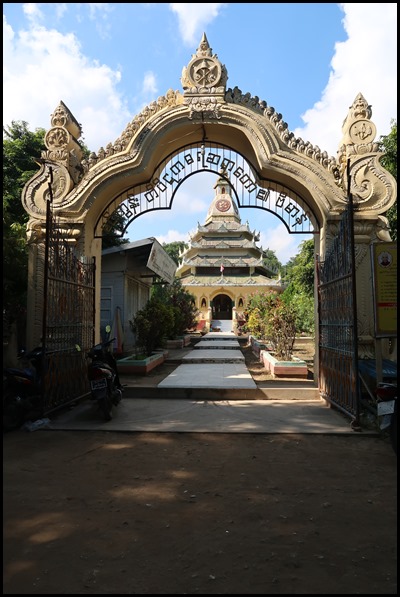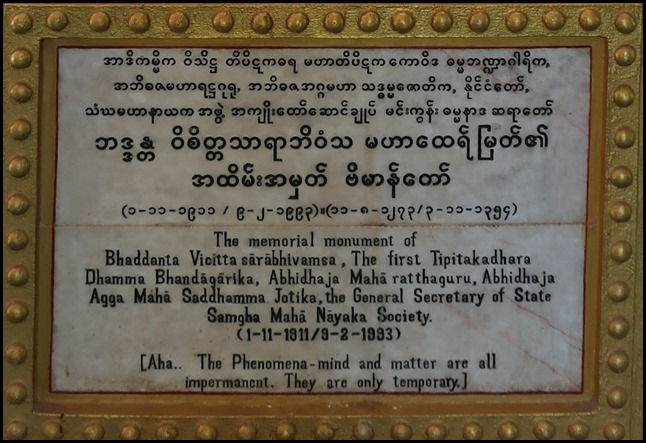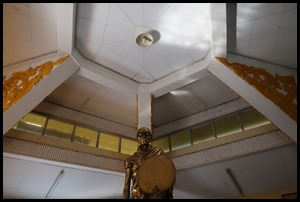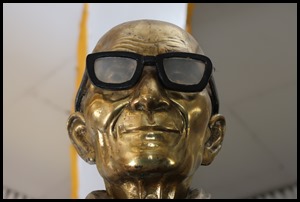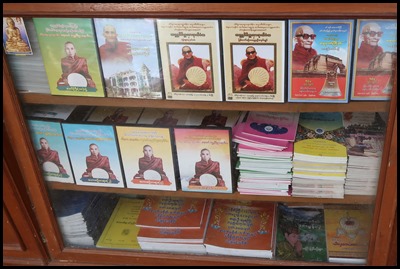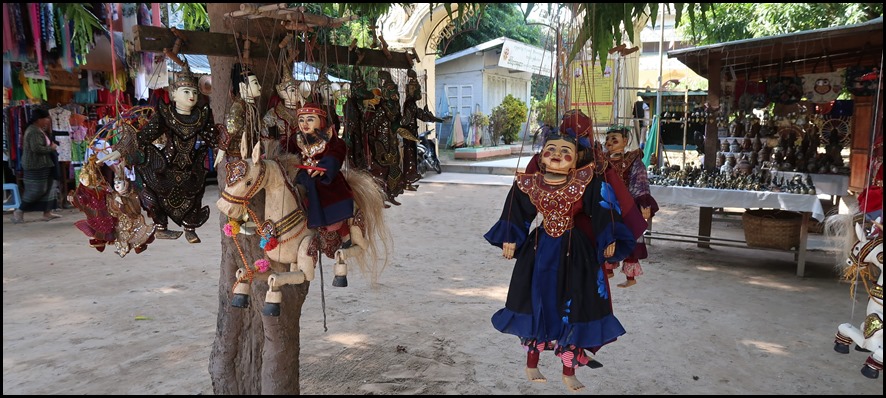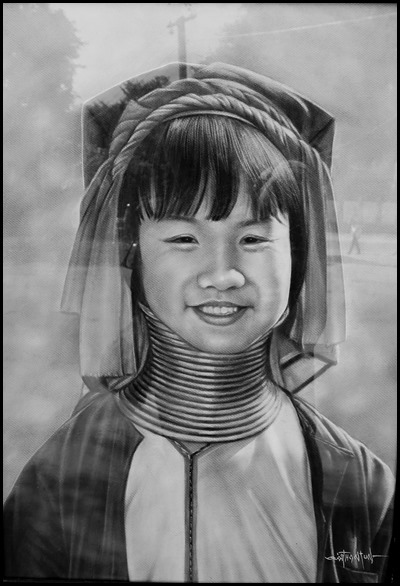Mingun Bell

|
The Mingun
Bell 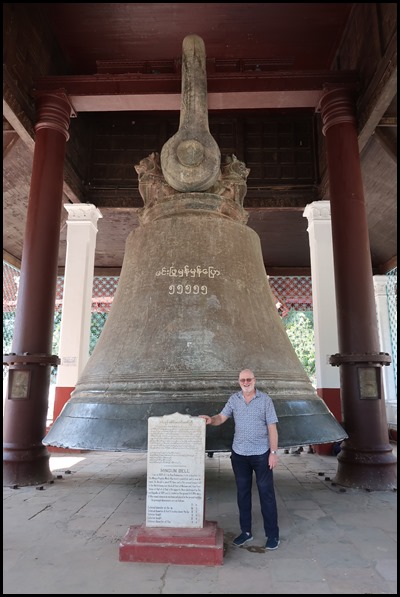 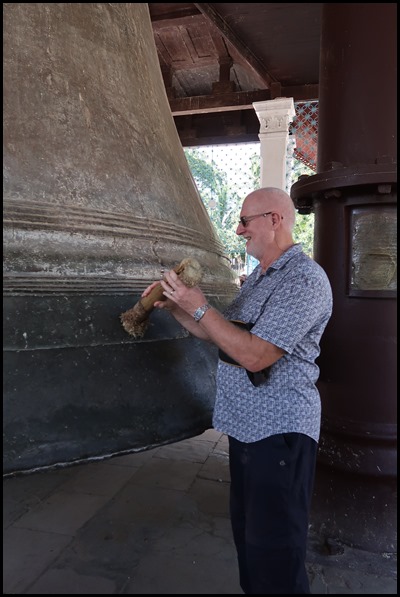 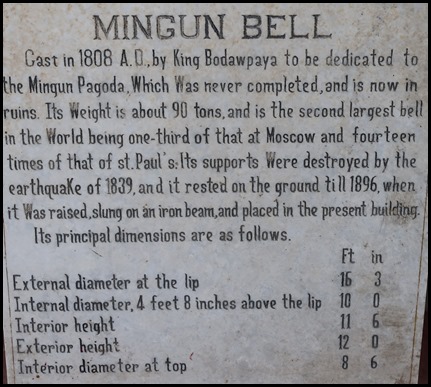 Weighing 90 tons, The Mingun Bell had long been the world's largest working
bell before a 116-ton bell found in China. This enormous bell was cast in 1808
at the order of King Bodawpaya. The weight of the bell is 55,555 viss (a Burmese
unit of measurement), and its mnemonic words are inscribed on the surface of the
bell. A wooden post is used to strike the bell to ring. To achieve a pleasant
ringing tone, an alloy of five metals was used to make the bell including gold,
silver, bronze, iron and lead.
The Mingun Bell was intended to be installed at the top of the giant Mingun Pagoda but for some reason, sheltered in a nearby Zayat (an intricate Burmese style pavilion with multi-tier roofs). It was said to be cast on an island in the middle of the Irrawaddy River, and to transport it to the present site a barge was constructed directly under the bell. In the rainy season, the river water rose and floated the barge. The king himself led the procession across the river. The Mingun Bell plays a big role in religious affairs, when one does a good deed, Buddhists will strike the bell to call on others to share the merit.
This plaque on a post reads the same as the marble information plaque above.
The heaviest functioning bell in the world from its suspension in 1810 until the 23rd of March 1839 when it was knocked off its supports during an earthquake. Resuspended in March 1896 by a team of men from the Irrawaddy Flotilla Company, the Mingun Bell was once again the world's heaviest functioning bell until 1902. In 1902, the newly-cast Shintennō-ji Temple Bell, Osaka, Japan hefted in at 114 tons but it was melted down to help with the war effort in 1942. The Mingun Bell once more became the world’s heaviest functioning bell.
A very substantial business at the top.
The thing to do with the Mingun Bell is to crawl under, stand up and have someone ring (strike) it three times. Done.
We left the Mingun Bell very impressed, and headed toward the Unfinished Pagoda, opposite was a small Cultural Museum but it was closed.
A chap his stock across the road to graze.
Lovely youngsters.
We saw an intriguing little pagoda and went to look, we found a chap in shades.
The memorial to Bhaddanta.
What a lovely face. Bhaddanta Vicitta Sarabhivamsa was the leader of the Bonzes, an abbot who died in 1992. A very intelligent man with an acute memory - he knew the Three Canons off by heart – that’s nine books, each a hefty five centimetres thick.
A very humble receptacle for candles and incense sticks. Books for sale showed Bhaddanta in life, fan in hand and shades in place. We liked him.
The area is famous for its puppets, seen dangling from a tree.
Wonderful artwork showing Kayan women wearing their traditional coils.
Loved this lady smoking. Time to head to the Unfinished Pagoda.
ALL IN ALL A THRILL TO SEE AND STAND BENEATH THE BELL WHAT A WHOPPER |
